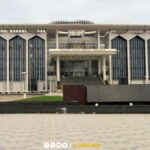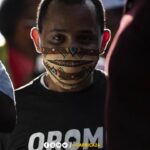Several days of celebrations are planned starting this Friday to mark the takeover by the CNSP, exactly one year ago. On July 26th, 2023, the military overthrew Mohamed Bazoum. Since then, the former president remains detained in the presidential residence with his wife, and his immunity was lifted last month.
The military justified the coup by citing deteriorating security and poor economic and social governance. One year later, what is the state of internal politics?
Niger still lacks a clear transition roadmap. The inclusive national dialogue promised last August to outline major directions has yet to occur. General Tiani, head of the CNSP, who has not been sworn in, initially promised that the transition would not exceed three years but has not mentioned it since.
One year after the coup, political parties remain suspended with no prospect of resumption. Elected bodies, including local ones, have been dissolved. “The CNSP is steering alone,” commented an observer. In Nigerien civil society, several voices have expressed concern this year over a presidential decree removing controls on defense-related expenditures.
One of the military’s main arguments for the coup was the ongoing deterioration of security in the country. What is the security situation one year later?
“When we look at the number of incidents, there have been more serious or minor incidents after the coup than before, and the number of casualties among soldiers has also increased,” said Seidik Abba, president of the International Center for Studies and Reflections on the Sahel (CIRES).
Moreover, the geographical scope of the threat has expanded, possibly due to intensified activities by JNIM, particularly in the border area with Burkina Faso and Benin, and by ISIS-GS in the tri-border region (Niger, Benin, Burkina). Even Boko Haram, which was relatively weakened, has resumed activities along the Diffa-Maine axis in the southeast, indicating an increase in terrorist activities penetrating further into the country.
Human Rights Watch, Amnesty International, and FIDH have expressed deep concerns. “Human rights have plummeted one year after the coup,” these three major international organizations stated unequivocally.
“We are deeply concerned about the repression of civic and political space, as well as independent media,” said Ilaria Allegrozzi, a Sahel researcher for Human Rights Watch. Former President Bazoum and his wife remain arbitrarily detained, along with dozens of government officials and associates of Bazoum. Several journalists have faced arbitrary arrests and intimidation. Media freedom has been significantly restricted, with many journalists practicing self-censorship due to fear of reprisals.
The cybercrime law was amended to reintroduce prison sentences for defamation via information systems. “In June, the Minister of Justice and Human Rights announced changes to the cybercrime law,” Allegrozzi noted. “These changes represent a very dangerous rollback that could silence dissenting voices among human rights defenders, activists, and journalists.”
Former President Bazoum remains detained in the presidential palace with his wife, following the lifting of his immunity last month.







